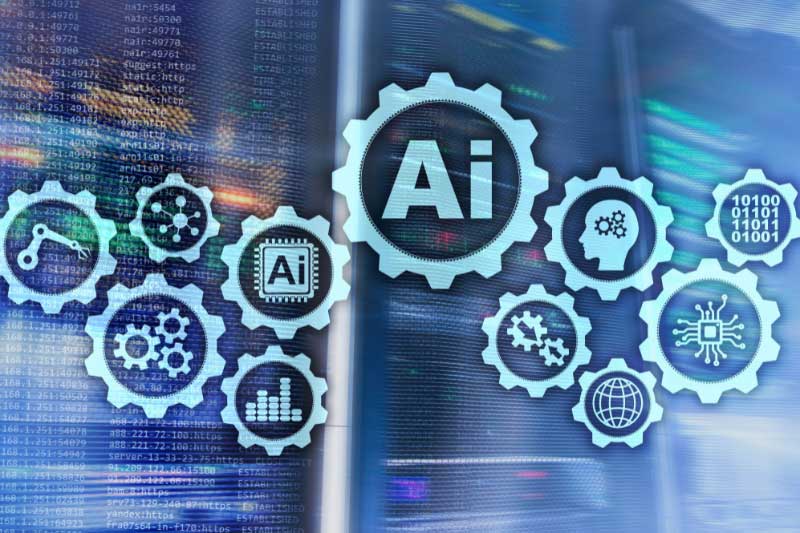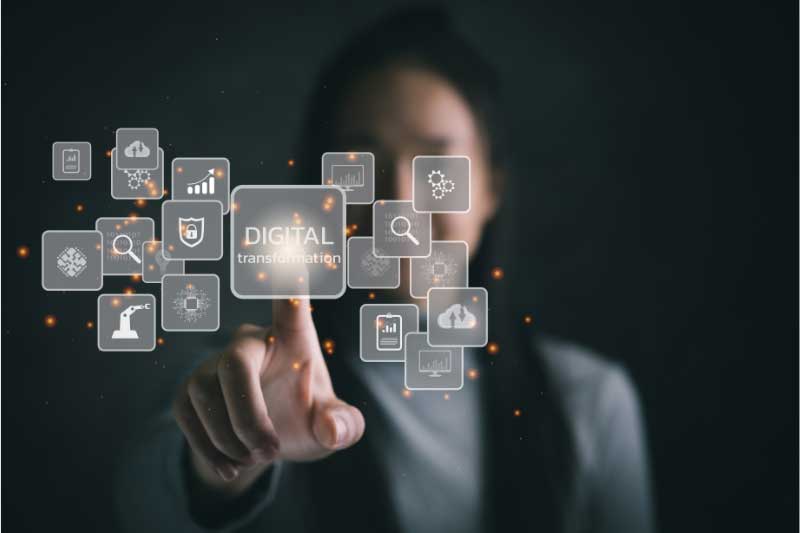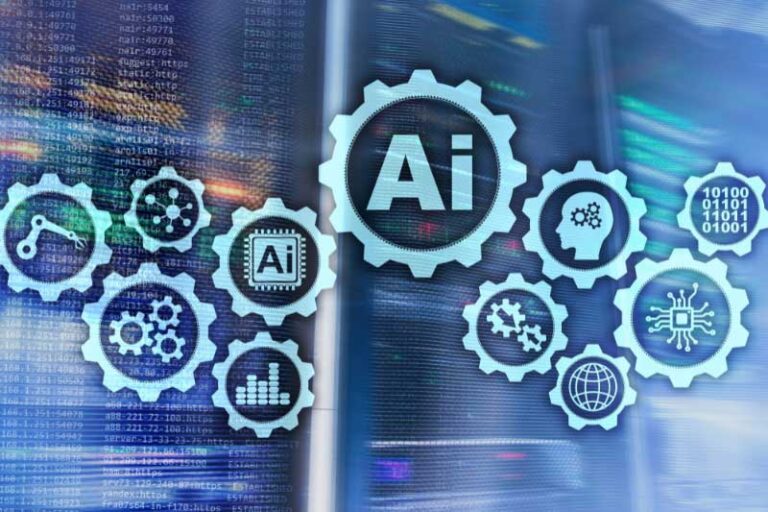Leverage AI magic to revolutionize your marketing. Discover cutting-edge tools and techniques. Imagine transforming your marketing strategy into a well-oiled machine that anticipates customer needs, personalizes experiences, and maximizes ROI. Sounds like magic, right? That’s exactly what AI marketing brings to the table.
Artificial intelligence (AI) in marketing is no longer a futuristic concept—it’s a reality reshaping the industry. This guide will explain AI marketing, why it matters, and how to harness its power to elevate your marketing efforts.
Whether you’re a seasoned marketer or just starting, this comprehensive guide will provide practical insights, actionable tips, and real-world examples to help you leverage AI marketing effectively.
Unleashing the Power of AI Magic in Marketing
Discover how AI Magic transforms marketing strategies. Learn practical applications and boost your campaigns.
Understanding AI Marketing
What is AI Marketing?
AI marketing uses artificial intelligence technologies to automate and enhance marketing processes. By leveraging machine learning, natural language processing, and data analytics, AI can make marketing more efficient and data-driven.
AI marketing covers various applications, from chatbots and recommendation engines to predictive analytics and programmatic advertising. It enables marketers to make smarter decisions and deliver more personalized experiences.
Why is AI Marketing Important?
The rise of AI marketing signifies a shift towards more data-driven and customer-centric marketing strategies. AI allows marketers to harness vast amounts of data to better understand customer behavior, optimize campaigns, and improve overall marketing performance.
AI marketing is crucial because it saves time and resources, increases accuracy, and enhances the customer experience. By automating repetitive tasks and providing valuable insights, AI frees marketers to focus on creative and strategic initiatives.
The Evolution of AI in Marketing
AI marketing has evolved significantly over the past decade. Initially, it was limited to basic automation tasks. Today, AI can predict consumer behavior, personalize content in real-time, and create marketing copy.
Early adopters of AI marketing have seen substantial benefits. Companies like Netflix and Amazon have set the standard for personalized marketing, using AI to recommend content and products based on individual preferences.
Applications of AI in Marketing
Customer Service and Chatbots
One of the most common applications of AI in marketing is customer service. AI-powered chatbots can handle customer inquiries 24/7, providing instant responses and resolving issues efficiently.
Chatbots are becoming increasingly sophisticated. They can understand and respond to complex queries. They can also gather customer data and provide personalized recommendations, enhancing the overall customer experience.
Personalization and Recommendation Engines
AI-driven recommendation engines are transforming how companies personalize their marketing efforts. By analyzing customer behavior and preferences, AI can suggest products, content, and services most relevant to each individual.
Personalization extends beyond product recommendations. AI can tailor email marketing campaigns, website content, and social media interactions to each customer’s unique preferences, increasing engagement and conversion rates.
Predictive Analytics
Predictive analytics is another powerful application of AI in marketing. Analyzing historical data, AI can predict future trends, customer behavior, and campaign outcomes. This enables marketers to make more informed decisions and optimize their strategies.
Predictive analytics can be used in various marketing aspects, from forecasting sales and identifying high-value customers to optimizing ad spend and improving lead scoring.
Programmatic Advertising
Programmatic advertising leverages AI to automate the buying and selling of digital ads. Using real-time data and algorithms, AI can target the right audience with the right message at the right time.
Manual ad buying cannot achieve this level of precision and efficiency. Programmatic advertising ensures that ad budgets are spent effectively, maximizing ROI and reducing wasted expenditures.
Benefits of AI Marketing
Increased Efficiency
One of the most significant benefits of AI marketing is increased efficiency. AI can automate repetitive tasks, such as data analysis, content creation, and customer segmentation, freeing up marketers to focus on more strategic initiatives.
By streamlining these processes, AI reduces the time and effort required to execute marketing campaigns, allowing teams to accomplish more with fewer resources.
Enhanced Personalization
AI marketing enables marketers to deliver highly personalized experiences at scale. By analyzing customer data and behavior, AI can tailor content, recommendations, and interactions to each individual’s preferences.
This level of personalization enhances customer satisfaction and loyalty, leading to higher engagement and conversion rates.
Improved Decision Making
AI provides marketers with valuable insights and data-driven recommendations, enabling them to make more informed decisions. Predictive analytics, for example, can help marketers identify trends, optimize campaigns, and allocate resources more effectively.
With AI, marketers can make strategic decisions based on data rather than intuition, leading to better outcomes and higher ROI.
Challenges of AI Marketing
Data Privacy and Security
One of the primary challenges of AI marketing is data privacy and security. AI relies on vast amounts of data to function effectively, raising concerns about how this data is collected, stored, and used.
Marketers must comply with data privacy regulations, such as the General Data Protection Regulation (GDPR), and implement robust security measures to protect customer data.
Integration with Existing Systems
Integrating AI into existing marketing systems and processes can be challenging. Marketers must ensure their AI solutions are compatible with their current tools and platforms, which may require significant time and resources.
Successful integration also requires buy-in from stakeholders and adequate training for marketing teams to use AI tools effectively.
Cost and Resources
Implementing AI marketing solutions can be costly, particularly for small and medium-sized businesses. AI requires significant investment in technology, infrastructure, and talent.
Marketers must carefully evaluate the cost-benefit ratio of AI solutions and consider the long-term ROI before making substantial investments.
How to Get Started with AI Marketing
Assess Your Needs and Goals
Before implementing AI marketing solutions, it’s essential to assess your needs and goals. Identify the specific areas of your marketing strategy that could benefit from AI, such as customer service, personalization, or data analysis.
Establish clear objectives and key performance indicators (KPIs) to measure the success of your AI initiatives. This will help you determine the most appropriate AI tools and solutions for your business.
Choose the Right AI Tools and Solutions
There are numerous AI marketing tools and solutions available, each with its unique features and capabilities. When selecting AI tools, consider factors such as ease of use, compatibility with existing systems, and scalability.
Some popular AI marketing tools include chatbots like Drift and Intercom, personalization platforms like Dynamic Yield and Optimizely, and predictive analytics solutions like HubSpot and Marketo.
Invest in Training and Education
To maximize the benefits of AI marketing, it’s crucial to invest in training and education for your marketing team. Ensure that your team members are familiar with AI concepts and proficient in using AI tools.
Consider enrolling your team in AI marketing courses, attending industry conferences, and staying up-to-date with the latest AI trends and developments.
Real-World Examples of AI Marketing Success
Netflix
Netflix is a prime example of a company successfully leveraging AI to enhance its marketing efforts. The streaming giant uses AI-driven recommendation engines to suggest content based on individual user preferences.
This level of personalization has significantly contributed to Netflix’s success, leading to higher user engagement and retention rates.
Amazon
Amazon is another company that has harnessed the power of AI to optimize its marketing strategy. The e-commerce giant uses AI to recommend products, personalize email marketing campaigns, and optimize its supply chain.
By leveraging AI, Amazon has created a seamless and personalized shopping experience for its customers, driving sales and customer loyalty.
Starbucks
Starbucks has also embraced AI marketing to enhance its customer experience. The coffee chain uses AI to analyze customer data and personalize its marketing efforts.
For example, Starbucks’ mobile app uses AI to recommend products based on individual preferences and purchase history, leading to higher customer satisfaction and increased sales.
Conclusion
AI marketing is revolutionizing how businesses approach their marketing strategies. By leveraging AI magic in technologies, marketers can enhance efficiency, personalize customer experiences, and make data-driven decisions.
While implementing AI marketing can be challenging, the benefits far outweigh the risks. By assessing your needs, choosing the right tools, and investing in training, you can harness the power of AI to elevate your marketing efforts.
Ready to take your marketing strategy to the next level? Start exploring AI marketing solutions today and discover the potential of this game-changing technology for your business.












